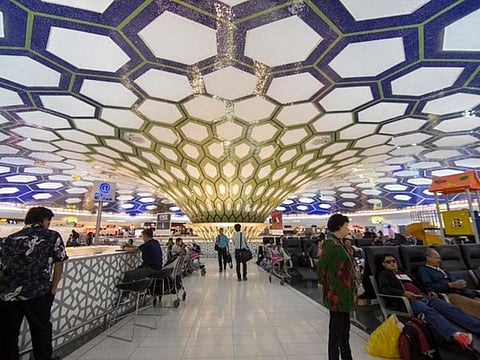Low-cost airlines can find themselves at home in Abu Dhabi
Launch of two new carriers out of Abu Dhabi Airport will create a new user base

Also In This Package
The commencement of Wizz Air and Air Arabia Abu Dhabi flights from Abu Dhabi International Airport within the past two weeks marked a significant moment in the development of Abu Dhabi’s aviation industry.
In the case of Wizz Air, it is the first time one of the UAE’s airports acted as a hub for a low-cost carrier (LCC) founded outside of the Middle East.
While historically, LCCs have seen more gradual growth in the Middle East than they have in other markets, there has existed for some time a demand from regional passengers for lower-cost short haul travel. Abu Dhabi is perfectly positioned to cater to a stronger, more robust LCC market.
In 2019, the regional LCC fleet size was around 152 – less than 0.1 per cent of global LCC fleet size. Industry observers have long predicted that the low prices of flights would be equated with a low quality of product by regional passengers. However, this perception is shifting, and demand is growing for value-oriented flights.
Feed many destinations
At the start of 2020, 16.5 per cent of the region’s seat capacity was made up by LCCs, a reflection of the significance of the launch Wizz Air Abu Dhabi and Air Arabia Abu Dhabi in the latter half of 2019.
Abu Dhabi’s geographic location has always made it an attractive aviation hub. With two-thirds of the world’s population living within an eight-hour flight time of the city and with its potential for short-haul connections, it is particularly attractive for LCC operators.
With cities at a five-hour flight time from Abu Dhabi ranging from Nairobi and Athens to Chittagong and Moscow, the range of destinations that could be served by is certainly diverse.
A subtle shift
As the emirate’s aviation industry has matured, Abu Dhabi International Airport has responded effectively to shifting consumer demand and ensured its infrastructure was well-calibrated to welcome new low-cost carriers. The airport has made long-term, strategic investments to ensure its facilities are uniquely suited to LCC operations, addressing key touch points such as reducing aircraft turnaround time.
The upcoming Midfield Terminal will also offer LCCs a suite of technological capabilities, rapid processing times and traveller amenities that will help them run smoother and more efficient operations – showcasing to passengers and airlines alike the benefits of travelling through or operating out of Abu Dhabi.
The UAE capital itself, with its tourist attractions and vibrant business community, further complements the attractiveness of Abu Dhabi International Airport as a global gateway and hub for airlines interested in harnessing the region’s potential and expanding their presence internationally.
The entry of LCCs into Abu Dhabi is yet another chapter in the emirate’s storied history of pioneering excellence in the aviation sector. Abu Dhabi Airports is committed to ensuring their potential is fully realised, supporting what is clearly a pressing market demand.
Abu Dhabi International Airport is now home to three distinct UAE national carriers, and through the use of its infrastructure, its ground crew, and its technological investments, it is already playing a central role in strengthening the presence of LCCs across the Middle East.
- Sheikh Mohammed bin Hamad bin Tahnoon Al Nahyan is Chairman of Abu Dhabi Airports.
Sign up for the Daily Briefing
Get the latest news and updates straight to your inbox









